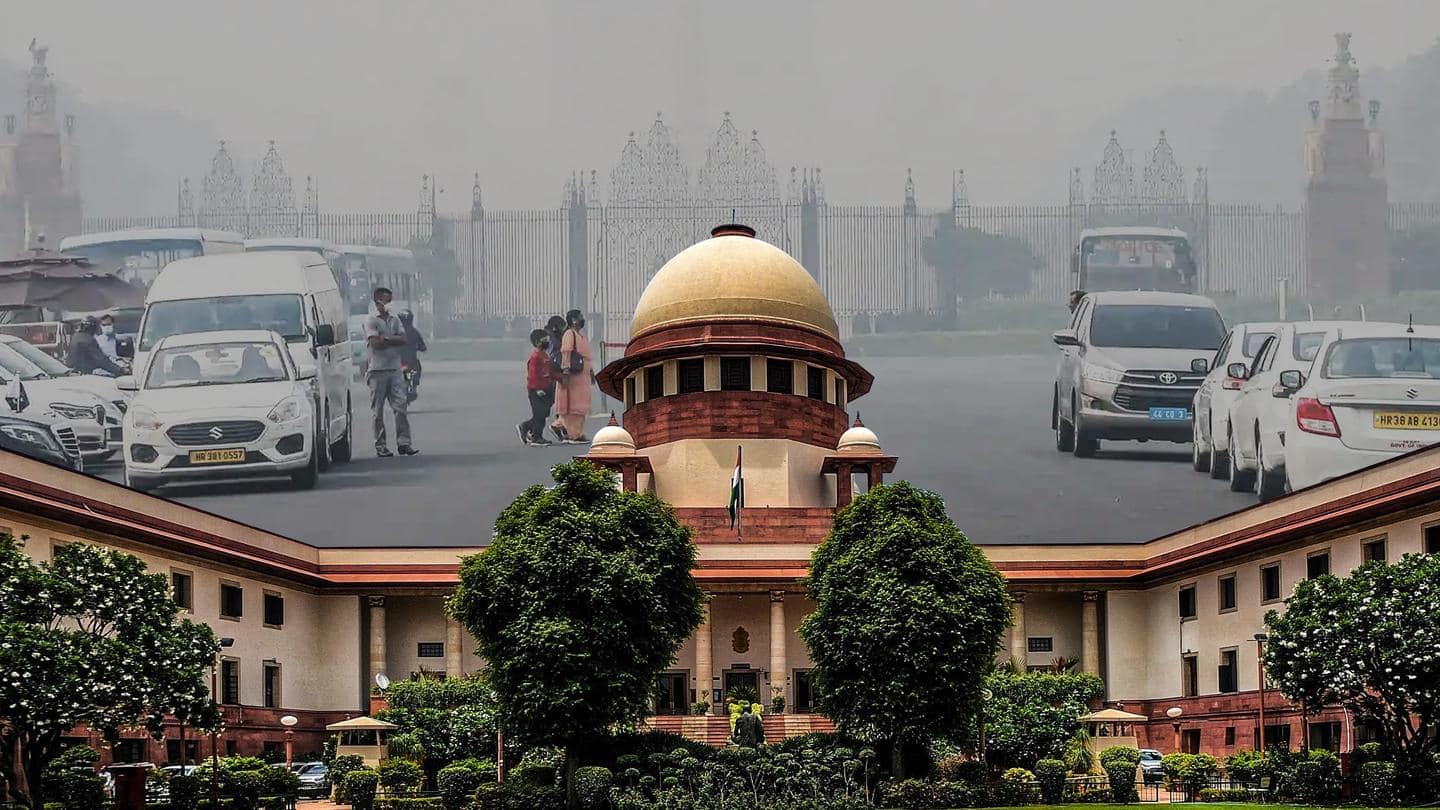Pollution: Supreme Court asks panel to decide on relaxing curbs
What's the story
The Supreme Court on Friday asked the Commission for Air Quality Management (CAQM) to take a decision on relaxing restrictions imposed over the air pollution crisis in Delhi.
A bench headed by Chief Justice of India NV Ramana said the decision should be taken within one week.
The top court bench noted air quality in the city has started improving.
Here are more details.
Context
Why does it matter?
The Supreme Court has been hearing arguments over the ongoing air pollution crisis in Delhi and neighboring areas for the past several weeks.
Delhi has been named the world's most polluted capital city for the past several years.
Every winter season, the city's air quality plunges to hazardous levels due to vehicular pollution, industrial emissions, and stubble burning, among other causes.
Details
Order relaxations where needed, SC tells CAQM
The Supreme Court cited applications saying construction workers are not being paid due to the ban.
"We direct CAQM to examine and consider issues raised by industries and other units and order relaxations where needed. We expect that Commission will take a call in one week...We direct states to follow earlier order and file compliance affidavit (sic)," the SC said.
Centre
Over 200 closure notices served by Centre
Meanwhile, the central government told the Supreme Court it has served more than 200 closure notices to industrial units, construction firms, and other establishments for violating pollution norms.
Several short- and long-term measures are being considered to tackle pollution, it assured.
The government, however, added that thermal power plants that were shut will have to be restarted by December 15 to avoid power issues.
Situation
How is Delhi's air pollution situation?
As of Friday afternoon, Delhi's overall Air Quality Index (AQI) was at 306, according to data from System of Air Quality and Weather Forecasting and Research (SAFAR).
That means it fell in the "very poor" category.
Notably, AQI between zero and 50 is considered "good," 51 and 100 is "satisfactory," 101 and 200 "moderate," 201 and 300 "poor," and 301 to 400 "very poor."
